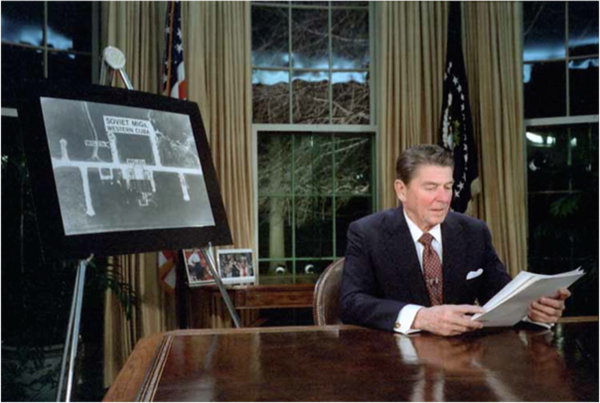Editorial: Responding to North Korea threat is the moral choice
Published 4:45 pm Friday, January 6, 2017

- President Ronald Reagan delivers his 1983 speech on the Strategic Defense Initiative. Source: Reagan Library.
Should we take North Korea’s boy-dictator Kim Jong Un seriously when he says his country is nearly ready to launch a working intercontinental ballistic missile? President-elect Donald Trump isn’t.
Still, it’s a reminder that the United States is morally obligated to develop a working, effective missile defense system.
“North Korea got 2017 off to a menacing start. In his New Year’s address, supreme leader Kim Jong Un warned that the nation was in the ‘final stage’ of preparations to test an intercontinental ballistic missile,” NPR reported on Friday. “A day later, President-elect Donald Trump said the North would never develop a nuclear weapon capable of striking the U.S. ‘It won’t happen!’ Trump tweeted. Bombast aside, independent arms control experts agree that North Korea is moving rapidly to develop an ICBM. And many suspect it will test a missile capable of reaching the continental U.S. later this year.”
That’s still a far cry from being able to aim one accurately, or being able to sufficiently miniaturize a nuclear warhead to fit on top of such a missile.
Yet we have to take North Korea, Iran and other potential nuclear threats seriously.
It’s not a new idea. It was a key part of President Ronald Reagan s Strategic Defense Initiative. When he announced the program in March 1983, he emphasized the moral choice involved. The deterrence doctrine of “mutually assured destruction” is immoral, he said.
“What if free people could live secure in the knowledge that their security did not rest upon the threat of instant U.S. retaliation to deter a Soviet attack, that we could intercept and destroy strategic ballistic missiles before they reached our own soil or that of our allies?” Reagan asked. “I know this is a formidable, technical task, one that may not be accomplished before the end of the century. Yet, current technology has attained a level of sophistication where it’s reasonable for us to begin this effort. It will take years, probably decades of efforts on many fronts. There will be failures and setbacks, just as there will be successes and breakthroughs… But isn’t it worth every investment necessary to free the world from the threat of nuclear war?”
He added, “I call upon the scientific community who gave us nuclear weapons to turn their great talents to the cause of mankind and world peace: to give us the means of rendering these nuclear weapons impotent and obsolete.”
His argument is still valid, especially now that President Obama has weakened the missile defense program.
Just because it’s hard doesn’t mean it isn’t worthwhile. Writing in the Wall Street Journal in 2014, defense analysts Dave Majumdar and Erik Schechter said it’s time for America to develop its own version of what the Israelis are using in their Iron Dome defense against incoming Palestinian rockets.
The point here is that North Korea may be years away from developing a working long-range nuclear missile. And we’re years away from developing truly reliable missile defense system.
But with threats looming on the horizon, it’s not merely advisable to prepare for them. It’s the only moral choice.






